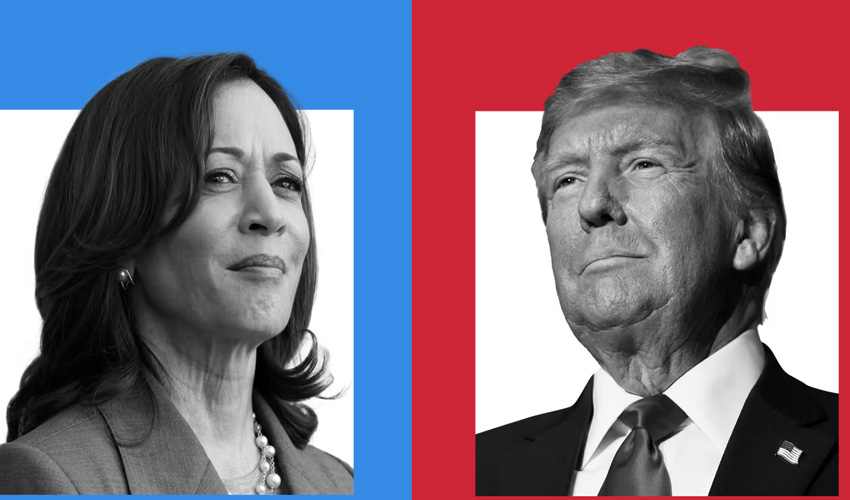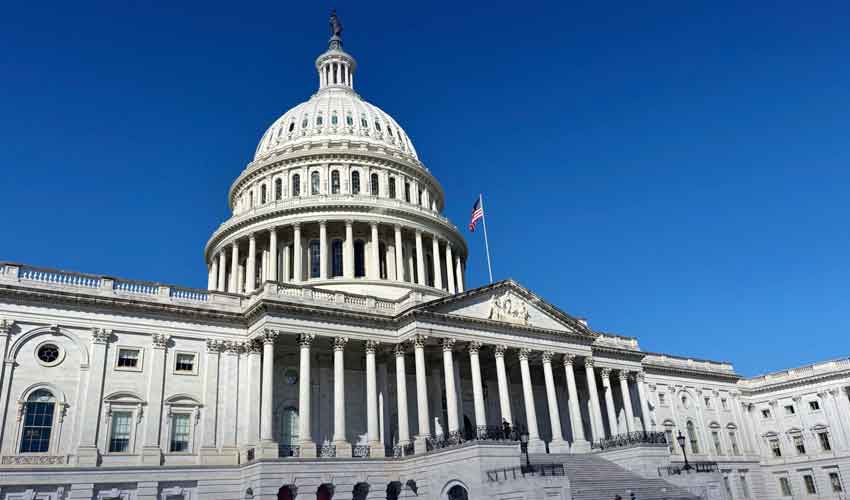As the US presidential race between former President Donald Trump and Vice President Kamala Harris intensifies, media coverage has reflected a stark contrast in what different political groups are focusing on.
According to data from The Breakthrough, a CNN polling project, Americans have been hearing more about Trump than Harris over the past week, although the narratives differ significantly based on political affiliation.
The latest survey, conducted from September 20 to 23 by SSRS and Verasight, showed that 75% of Americans had consumed news about Trump, compared to 69% for Harris. This marks a shift from late August, when both candidates were receiving relatively equal attention in the media. The divergence in focus is largely driven by recent high-profile events, including an assassination attempt on Trump and contentious statements about immigration.
Assassination attempt vs immigration claims
For Republican voters, the assassination attempt on Trump during a golf outing in Florida earlier this month has dominated discussions. Many respondents mentioned hearing about the incident and expressed concerns over the increasing dangers Trump faces while on the campaign trail. As one respondent put it, "Donald Trump has been out on the campaign trail and it’s getting dangerous for him. He had a second attempt on his life recently at a golf course."
This event has stirred concern and sympathy within Trump’s support base, further fueling a narrative of Trump as a political figure under siege. Phrases like "assassination attempt" and "golf course" were frequently cited by Republican respondents in the survey, emphasizing the gravity of the incident for his supporters.
In contrast, Democrats are fixated on Trump’s controversial comments about Haitian immigrants in Springfield, Ohio. Trump falsely claimed that immigrants in the area were responsible for eating local pets, a narrative that has drawn widespread criticism from the left. "He continues to peddle the Springfield story about Haitian immigrants eating local pets," one Democrat respondent noted, underscoring the growing outrage over what many see as Trump's use of inflammatory and racially charged rhetoric.
Trump’s statements have sparked broader concerns about misinformation and its impact on the electorate, particularly in swing states. His remarks have been widely discredited, yet they continue to resonate with parts of his voter base, raising questions about the role of fact-checking in the 2024 campaign.
The Harris media presence
Kamala Harris, while receiving slightly less media attention than Trump in recent weeks, has remained a focal point for her performance in the first presidential debate and her willingness to face Trump again in future rematches. Many Democrats mentioned the debate as the key news event involving Harris, with words like "debate" and "lie" frequently appearing in survey responses. These references highlight the contentious nature of the debate, during which Harris challenged Trump on multiple fronts, including his claims about immigration and his performance in handling domestic issues.
Harris also garnered attention for her recent interview with Oprah Winfrey, a move aimed at connecting with broader audiences. This interview has been perceived positively by many Democrats, who view Harris as a strong candidate capable of uniting the country amidst growing polarization.
However, while the tone of coverage surrounding Harris has generally been more positive than that of Trump, the gap in sentiment between the two candidates has narrowed since the debate. Harris’ sentiment ratings have dipped slightly, with more negative commentary emerging in recent days, although she still holds a slight edge in positive mentions over Trump.
Independents split between two candidates
Political independents, a crucial voting bloc in any U.S. election, have shown an interest in both the Trump assassination attempt and the immigration controversy. The survey found that independents were equally likely to bring up both issues, reflecting the divided nature of the race. This balanced focus suggests that independent voters remain undecided, with neither candidate securing a clear advantage among this key demographic.
Responses from independents often included broader references to the "campaign" and "election," indicating a focus on the overall state of the race rather than individual events or controversies. With the race tightening, both Trump and Harris are likely to ramp up their efforts to win over this segment of voters in the final weeks before the election.
The divergence in media consumption between Republicans and Democrats also mirrors the broader political polarization in the U.S. Media outlets with conservative leanings have focused heavily on the assassination attempt and Trump’s campaign efforts, while left-leaning outlets have been more critical of Trump’s rhetoric, particularly on immigration.
This divide is likely contributing to the different perspectives that voters have on the two candidates. For many Republicans, Trump remains a leader under threat, both politically and physically, while Harris is viewed with skepticism. Conversely, Democrats continue to view Trump’s actions and statements as deeply troubling, while Harris is seen as a stabilizing figure capable of steering the country in a new direction.
As the election approaches, the sentiment gap between the two candidates will be a key factor in shaping voter behavior. While Harris currently enjoys a more positive tone in media coverage, Trump’s ability to dominate the headlines with high-profile incidents and controversial statements continues to keep him in the public eye. Both campaigns are likely to adjust their strategies to either capitalize on or counteract these media narratives.
Ultimately, the question remains whether the attention surrounding Trump’s near-assassination and inflammatory rhetoric will continue to define his campaign, or if Harris will be able to maintain a steady, positive presence in the media and resonate with voters on critical issues.



























